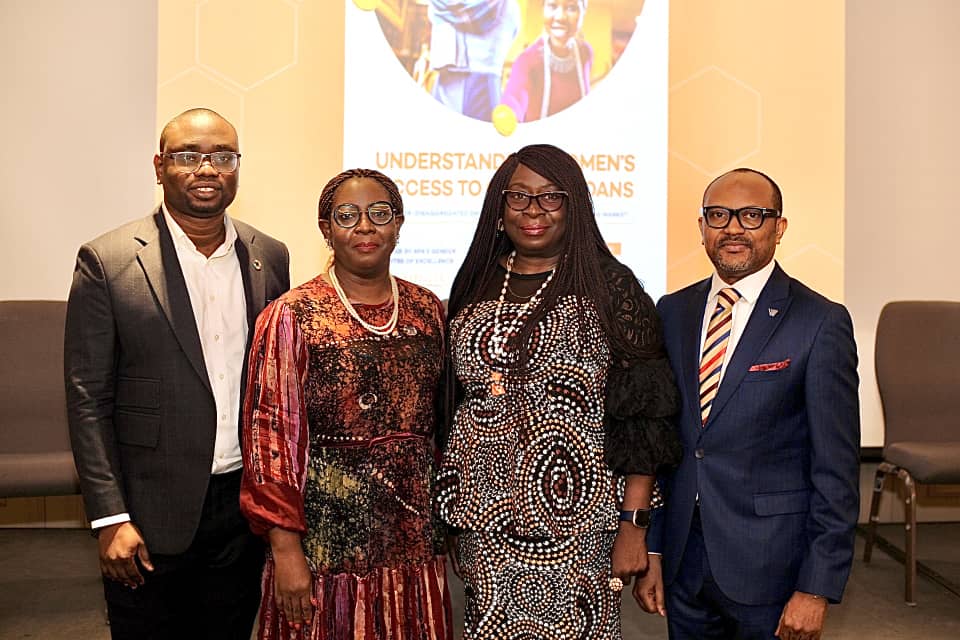 The Gender Centre of Excellence (GCE) at the Rockefeller Philanthropy Advisors (RPA) has reiterated the need for more inclusive financial services for Nigerian women.
The Gender Centre of Excellence (GCE) at the Rockefeller Philanthropy Advisors (RPA) has reiterated the need for more inclusive financial services for Nigerian women.
The centre made the call during the launch of the Gender-Disaggregated Data Analysis of the Nigerian Lending Market Report, held at a stakeholder’s event in Ikeja, Lagos State.
The Gender-Disaggregated Data Analysis of the Nigerian Lending Market Report is a product of the Rockefeller Philanthropy Advisor’s Gender Centre of Excellence (GCE) – a centre established with the support of the Bill and Melinda Gates Foundation to be a strategic resourcecentre and knowledge hub on advancing women’s financial inclusion in Nigeria.
As part of its key findings, the report revealed that 98 per cent of Nigerian women are left out of formal credit markets due to lack of trust in formal institutions and lack of awareness of credit products at-market, among other factors.
In her opening remarks, the Vice President, Economic Inclusion, RPA, Henrietta Bankole-Olusina, noted that the importance of the report cannot be over-emphasised because it takes a closer look at the differences between men and women’s access to finance and how these differences impact credit performances, financial inclusion and the country’s potential for growth.
According to her, “Men and women have similar rates of formal borrowing. On the surface, this may suggest that men and women face similar preferences and challenges in accessing credit. However, the large gender gap in account ownership suggests that men and women do have different financial behaviours. If gender is considered as the only differentiating factor between these consumers, there may be key characteristics that are obscured by gender, but that also affectaccess and use of financial services, particularly credit.
“This is the aim of the Gender-Disaggregated Data Analysis of the Nigerian Lending Market Report – to explore gender differences and access to finance as well as help breakdown the perception of women consumers as a monolith. It is our hope that the report will help promote financial and gender inclusion in Nigeria by highlighting opportunities to reach this promising segment.”
Delivering the keynote address, the Managing Director, EdFin Microfinance Bank, Bunmi Lawson emphasised the urgent need to drive financial and economic inclusion in Nigeria, especially among women.
“Beyond financial inclusion, we must equally prioritise economic inclusion, as one cannot exist without the other. Efforts must be made to address the major drivers of financial exclusion such as lack of income and economic capabilities, lack of education and low trust in financial service providers,” Lawson said.
She noted that efforts to boost financial inclusion by policy makers and financial service providers must move beyond product innovation to addressing these underlying drivers of financial and gender gaps through more systemic collaborations between all stakeholders.



